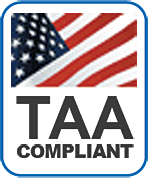
If you are supplying products for GSA Schedules and other government contracts, those products must comply with TAA.1 TAA requires that products originate from the United States or another approved country. Failure to comply with TAA can lead to award cancellation, multi-million dollar fines, criminal prosecution and suspension or debarment from federal contracting. Scrutiny of TAA compliance has intensified due to increased governmental oversight, qui tam “whistleblower” lawsuits and TAA-related bid protests, so the days when TAA could be disregarded without repercussions are long past. Because contractors face serious consequences, they have begun to require their suppliers to certify products for TAA compliance and even indemnify them against damages arising from noncompliance, so understanding TAA is imperative to contractors and their suppliers alike.
What is TAA?
TAA refers to the Trade Agreements Act (19 U.S.C. § 2501–2581), which is intended to foster fair and open international trade. TAA requires that products must be produced or undergo “substantial transformation” within the United States or a designated country,2 including countries that have reciprocal trade agreements with the United States, Caribbean Basin countries and certain “least developed” countries. The People’s Republic of China and some other major players in electronics manufacturing are notably absent from the list of designated countries, which makes supplying products such as electronic equipment more difficult.
When does TAA apply?
TAA compliance requirements are built into federal procurement contracts such as GSA Schedule contracts, IDIQ contracts and most Department of Defense contracts. Although TAA requirements only apply when purchases exceed a certain dollar threshold (currently $194,000 for goods and services), this does not mean that you can ignore TAA if you typically receive orders below that threshold. The GSA states:
Since the estimated dollar value of each Schedule exceeds the established TAA threshold, TAA is applicable to all Schedules. In accordance with TAA, only U.S.-made or designated country end products shall be offered and sold under Schedule contracts.3
That means every single product offered under GSA Schedule contracts must be TAA compliant, regardless of cost.
Conclusion
If you supply products to the government or government contractors, you need to make sure those products are TAA compliant. Penalties for noncompliance are prohibitively expensive. The best way to ensure TAA compliance if you do not manufacture the products is to source them from a reputable manufacturer with intimate knowledge of their supply chain and a TAA certification program.
Get more information, including over 300 Tripp Lite TAA-Compliant Products.
1 TAA applies to most, but not all federal procurement contracts. Consult with your corporate compliance officer and legal counsel to determine whether TAA applies to your contract or proposal. It is important to remember that there is no penalty for offering TAA-compliant products where they are not required, but there may be substantial penalties for offering noncompliant products. It is therefore safer to err on the side of compliance.
2 For the current list of designated countries, go here.
3 Source: US General Services Administration (GSA)





